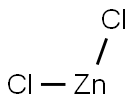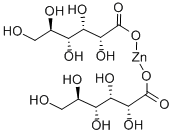Organic Chemistry
Minerals (also known as inorganic salts). Mineral is the general term for inorganic substances in the human body, also is a natural compound or element in the crust. Minerals and vitamins are essential substances of human body and cannot be generated or synthesized by the human body. Daily intake of minerals is basically constant, but also varies with the difference of age, gender, physical condition, environment, working conditions and other factors.
Trace elements are defined relatively to the main element (elements of a large number in human body). According to the different storage objects, they can be divided into multiple types. the current concern is mainly on two types, one is the trace elements in organisms, another is the trace elements in a non-livings such as rock.
- Structure:

- Chemical Name:Zinc chloride
- CAS:7646-85-7
- MF:Cl2Zn
- Structure:

- Chemical Name:Sodium
- CAS:7440-23-5
- MF:Na
- Structure:

- Chemical Name:Manganese sulfate monohydrate
- CAS:10034-96-5
- MF:H2MnO5S
- Structure:

- Chemical Name:Zinc gluconate
- CAS:4468-02-4
- MF:C12H22O14Zn
- Structure:

- Chemical Name:Selenious acid
- CAS:7783-00-8
- MF:H2O3Se
- Structure:

- Chemical Name:Zinc sulphate
- CAS:7733-02-0
- MF:ZnSO4
- Chemical Name:Zinc Glycyrrhizinate acid 30% HPLC
- CAS:
- MF: